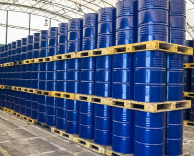How Minimac Drives Industrial Sustainability
Introduction:
Minimac Systems is revolutionising industrial sustainability in lubrication management. As a self-styled ESG enabler, Minimac provides clean-tech solutions across the lubricant lifecycle, from oil analysis to waste-oil reuse. Its mission is to explicitly decarbonise. In practice, Minimac's high-tech oil filtration machines, smart lubrication systems, and oil condition monitoring tools cut waste and downtime effectively, acting as industrial emission control technologies by minimising leaks, spills, and improper operation.
In this blog, we talk about 3 smart technologies Minimac uses to reduce emissions, all available through its product line, followed by an overview of how the company enables circularity in lubricant management.

3 Smart Technologies Minimac Uses to Reduce Emissions
1. FS-Series Oil Filtration Systems for Clean Lubrication
A central segment of Minimac's portfolio is its FS-series oil filtration systems and purifiers. These heavy-duty machines filter out water, sludge, and particulate contamination from hydraulic and lubricating oils, keeping circuits ultraclean. Simply, keeping oil clean means fewer oil changes and less waste oil generation, which directly lowers the carbon footprint of lubrication. The FS systems are even GreenPro certified, proving their low environmental impact.
By catching 1-149 µm particles, these filters drastically extend both oil and machine life. Minimac data shows that cleaner oil yields fewer deposits + less contamination = longer oil life and longer equipment life. This translates to buying and burning far less new oil (and fewer replacement parts), which cuts refinery emissions and waste.
These oil filtration units also tie into environmental compliance solutions. By vastly reducing particulates and water in oil, plants meet cleaner-operating standards, avoiding soot and effluent from dirty oil. The systems are designed for many industries (from power plants to metal mills), but the effect is universal: cleaner oil means more energy-efficient equipment with a smaller carbon footprint.
2. Smart Lubrication and Condition Monitoring Technologies
Minimac pairs clean-oil tech with smart lubrication and condition monitoring to further slash waste and energy use. Our strategy is to keep machines running exactly as needed, not over-lubricated or under-lubricated, using sensors and data. These systems detect changes in oil condition and automatically adjust flow rates, marking down oil waste while extending machine life.
Behind the scenes, oil condition monitoring equipment plays a big role. Minimac supplies on-site analysis tools and portable lab-in-a-box solutions so that maintenance teams don't have to ship samples out. These instruments allow real-time health insights with advanced sensors for active service. Continuous monitoring is indeed a pillar of Minimac's tech. Minimac's IIoT sensors and online particle analysers provide 24/7 alerts if oil quality degrades.
This shift to smart, data-driven lubrication produces major power gains. By tracking oil health and machine wear, Minimac allows for predictive maintenance. Teams identify failures based on data trends before a breakdown happens. Early fixes mean equipment stays more productive, limiting energy draw and safety shutdowns. It also prevents emergencies that often lead to burning extra fuel or flaring. Cleaner and properly lubricated machines produce less friction and heat, meaning energy-efficient equipment operation.
Minimac's smart lubrication and monitoring stack reduces lubrication waste and energy waste. This aligns with green maintenance principles by using analytics and IoT to keep plants working cleanly and economically.
3. Portable Oil Purification and Vacuum Dehydration Systems
Another powerful emissions-reduction tool Minimac provides is its range of portable oil purification units and vacuum dehydration systems. These systems are intended to detoxify free, emulsified, and dissolved water from oils in critical equipment like turbines, transformers, and hydraulic circuits.
These purification units greatly improve oil service life by maintaining its chemical and physical integrity, helping customers avoid premature oil disposal. Purifying moisture and gases from oil also prevents rust, cavitation, and micro-pitting, all of which contribute to poor machine performance. With these tools, plants reduce the need to flush or replace fluids unnecessarily, thus dropping the oil consumption rate and associated emissions. Minimac notes that these systems contribute to sustainable plant operations, level up equipment uptime, decrease disposal frequency, and meet industrial emission control standards.
For more information about how Minimac contributes to ESG, click here.
Driving Circularity in the Lubrication Lifecycle
Beyond smart tech, Minimac champions a circular economy for lubricants. Our long-term goal is to abate 860 gigagrams of CO₂e by 2034. Instead of the traditional use-and-dump oil model, we bolster oil reuse and recycling at every stage in three stages of nano, micro, and macro circularity.
Nano Circularity: This is basically mid-life oil treatment. By using Minimac's purification (filtration, dehydration, etc.) to clean oil in service, machines need far fewer oil changes.
Micro Circularity: It simply refers to end-of-life reconditioning. When oil finally degrades, we can recondition it to a new-like state via processes like ion exchange and TAN reduction.
Macro Circularity: This stage involves waste oil collection and re-refining. Minimac addresses global waste oil loss by organising waste oil collection and helping with re-refinery conversion to re-refined base oil.
We can summarise this loop as Reforming, Reducing & Reusing used oil. By allowing lubricant circularity, our solutions take the edge off the waste and emissions across the board. In a sustainable plant, every drop of oil is further utilised or recycled, preventing waste oil management issues and reducing the carbon footprint of lubrication. Industries adopting such circular lubricant practices might meet higher ESG in manufacturing standards and stay in line with environmental compliance.
Conclusion
Minimac's smart lubrication management strategy includes full-circle lubricant reuse, specialised maintenance systems, and heavy-duty oil cleaners, all of which improve plant performance and reduce emissions. This approach encourages sustainable plant operations by improving equipment reliability and abiding by strict environmental regulations. Minimac's lifecycle advice suggests that keeping waste oil clean and in use can help to offset its environmental impact. Businesses may accomplish net-zero commitments and exceed their ESG objectives by using these smart lubrication solutions, proving that even a drop of oil can have a big influence on industrial sustainability.
Learn more about our services and industry insights by visiting our official LinkedIn page: Minimac Systems





